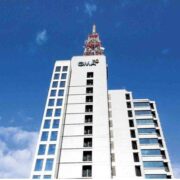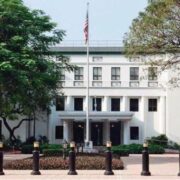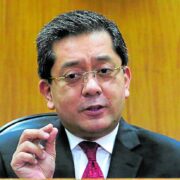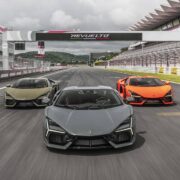Coming full circle: Musings of a car guy-turned-mobility believer
I vaguely remember guesting on an obscure talk show on the People’s Television Network in the late 1990s.
The talk show featured fresh University of the Philippines graduates who they thought would have a bright future ahead of them. The smug, idealistic English-speaking Iskolar ng Bayan in me thought I would change the world and make it a better place. And promptly enough, I was criticized by a TV viewer who phoned in his “don’t get your hopes up” comment, which the talk show host read on-air.
Almost three decades since then, I realized there are two kinds of people on earth – those who dream and those who let other people quash them.
As we end 2023 and usher in the new year, we are yet again faced with issues we wish would be resolved. Having a utopian view of society isn’t so bad. While we may never achieve perfection, striving for it doesn’t harm us either.
Here are some long-standing mobility issues we hope will be resolved in 2024, and hopefully, within this administration’s term.
More manageable traffic
There’s one constant in all traffic congestion we experience daily – the volume of vehicles on the road. While we can’t blame people for purchasing cars to have comfortable journeys, perhaps our government should address the real issues at hand – the lack of safe, comfortable and reliable public transportation.
As we have seen, building more roads isn’t the solution it was touted to be. Perhaps we need a new mindset to solve the perennial traffic problem, instead. One that prioritizes moving people instead of cars in real-world practice, rather than just mere lip service.
Fewer emissions
The one silver lining the pandemic brought with it was opening our eyes (and lungs) to the possibility of a smog-free metropolis. When the government imposed travel restrictions during the lockdowns, we were treated to cleaner air, clearer visibility, and a quieter metropolis because of the reduced number of vehicles on our roads.
What if we told you this could be possible again if we had more electric vehicles on our streets? If only those who lived and worked in Metro Manila used battery electric vehicles or plug-in hybrids, we could see less smog and bluer skies again.
Of course, it follows that electricity used to charge these EVs should be sourced from renewables. Of course, it follows that raw materials used to make the batteries of EVs should be obtained without further harming our environment. And, of course, the operational safety of these vehicles should be paramount and be governed by implementing and adhering to new industrial standards.
But as with every technological advancement, EVs are a work in progress. The wheel, as we know it today, wasn’t invented overnight. Neither was it only used in its current form. It took thousands of years to evolve into what it is today.
In the same way that the internal combustion engine took 160-plus years to become the complex machines they are today to further the progress of the human race, EVs could be one of those technologies poised to take humanity into a new era of mobility. And if more people use them, companies can invest in making them more efficient, safer, and cheaper.
Better roads
Taxpayers are entitled to see and experience where our money goes. With many problems facing the nation, wishing for smoother roads may be an insensitive dream to benefit only a relative few. But if cities like Pasig can smooth out their portion of C5, then it is okay to dream for other LGUs to invest our money to improve our roads.
Avoiding potholes and ruts is one source of traffic. Well-paved asphalt roads can help save fuel costs by reducing the slow-down of traffic and allowing engines to operate at their optimum best. More excellent roads also help achieve faster travel and lower fuel consumption by reducing idle time. And with better roads, we can also reduce our suspension repair bills. Think about it.
Realize road-sharing
Bicycles aren’t the enemy. Many societies have embraced them as viable and sustainable means of transportation. The mindset that only cars, buses, and trucks can use our roads should be changed from the policy-maker level down to the man or woman behind the steering wheel.
Let’s face it: Not everyone can afford a car. And our roads are clogged up as they are now. We can, however, make it safer for those who choose to ride their bicycles to work. Health reasons aside, riding a bike can save a destitute daily wage worker hundreds of pesos monthly in transport costs. Making it safer for thousands of people to use their bicycles to get around the metro is just one piece of the mobility puzzle we can work on for now.
Breeding road disciplineIt doesn’t matter what new laws our government passes if the driver or rider will violate them when no one is looking. The proper education of road users is vital to achieving discipline on our roads. And it should start in school because everybody is a road user at one point in their lives.
Getting everyone on the same page isn’t the easiest, especially as we live in a society that perpetuates individual thinking and diversity in points of view. But it has to start somewhere. In the same manner that our kids are taught what is right and wrong; and inculcated with socially accepted values in school, teaching them early about the precepts of road discipline and road etiquette is a good step in effecting change.
As I leave these hallowed pages of the Philippine Daily Inquirer for a new opportunity to work with an automotive distributor, I rest easy in the fact that in the last three years, I was able to share my thoughts on how mobility can be a better experience for all.
Granted, only some people who mattered may have read my opinions and views, but getting them out there for people to peruse, think about, agree with, and even disagree with is good enough for me.
If I could give my 21-year-old dreamy self unsolicited advice, it would be this: Don’t give up on your country and your people. Good things don’t come quickly, and nothing easily attained is bound to last. We may not be able to change society in this lifetime, but at least, plant the seeds that will make it possible in the future.
















